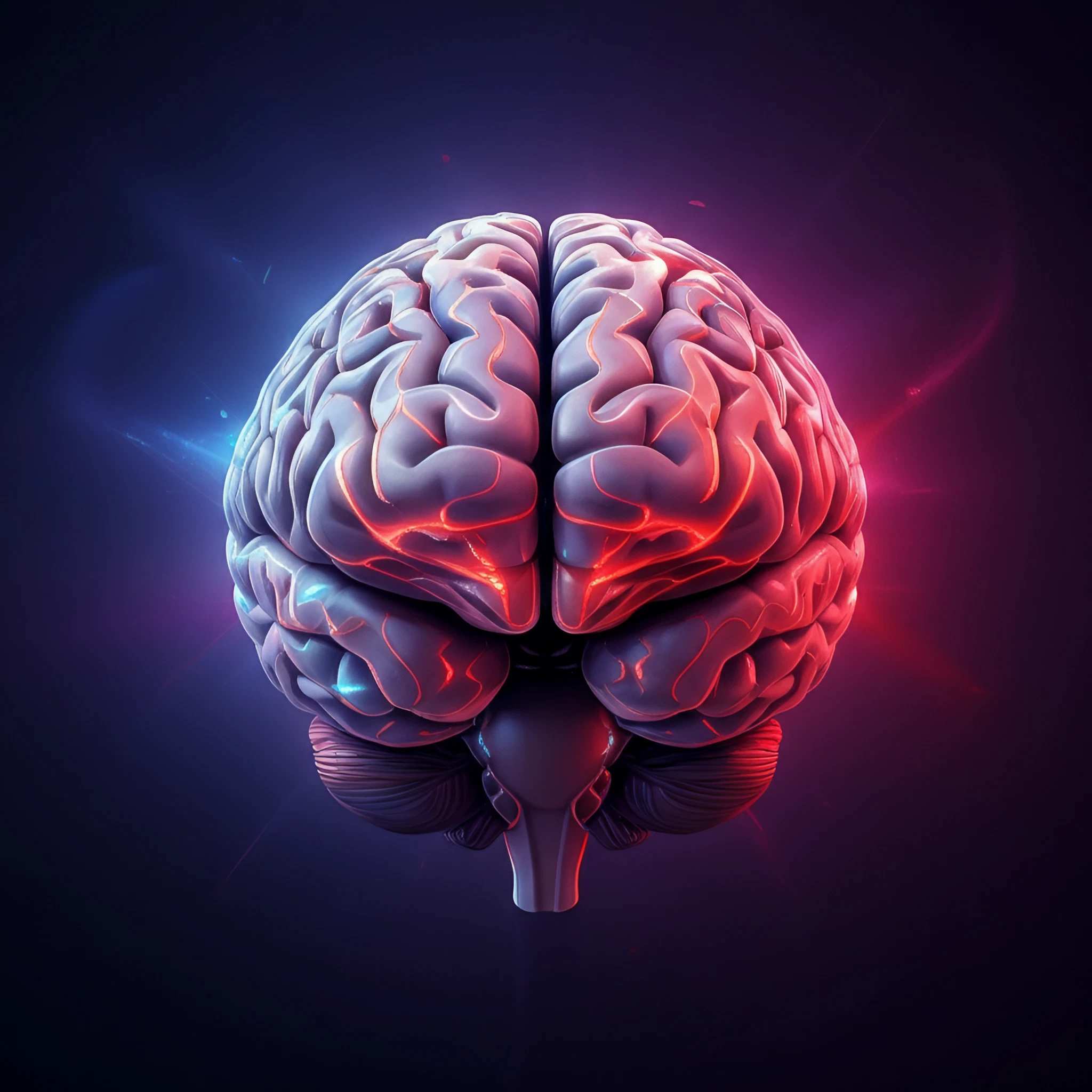Your cart is currently empty!

What Does Amphetamine Do to the Brain?Amphetamine Brain Effects are widely known for their stimulating effects, and they’re most commonly associated with treating conditions like ADHD and narcolepsy. But have you ever wondered exactly how they interact with the brain? Whether you’re a health enthusiast, part of the mental health community, a student tackling neuroscience, or someone managing ADHD, this blog will help you understand the science behind amphetamines and their impact on brain function.
By exploring how amphetamines like Adderall work and examining the broader category of stimulants, we’ll unpack their effects on brain chemistry, cognition, and mental well-being.

What Does Amphetamine Do to the Brain?
Amphetamine Brain Effects are a class of central nervous system (CNS) stimulants that significantly affect brain activity. They work by interacting with neurotransmitters—chemical messengers responsible for communication between neurons. The primary areas of impact include dopamine and norepinephrine, two critical neurotransmitters in the brain.
1. Boosting Dopamine Levels
Amphetamines trigger the release of dopamine and inhibit its reuptake, leading to a build-up of dopamine in the brain. Why does this matter? Dopamine is closely tied to feelings of reward, pleasure, and motivation. By increasing dopamine levels, amphetamines can enhance focus, energy, and a sense of euphoria.
However, there’s a downside. Continual stimulation of dopamine pathways can harm receptors over time, potentially decreasing the brain’s sensitivity to dopamine. This is why long-term or non-prescribed amphetamine use has been linked to dependence and diminished emotional regulation.
2. Elevating Norepinephrine
Norepinephrine, often associated with the “fight-or-flight” response, plays a role in alertness, arousal, and stress. By increasing norepinephrine activity, amphetamines heighten attention, improve reaction times, and combat fatigue. This explains why they are effective in managing conditions like ADHD, where maintaining focus can be a challenge.
Yet, overstimulation of norepinephrine can also lead to undesirable side effects, including anxiety, restlessness, and elevated heart rates, which some users report during or after amphetamine use.
3. Impact on Energy and Cognition
Amphetamines speed up the communication between neurons, leading to increased brain activity. This helps improve mental clarity, enhance memory retention, and sharpen problem-solving skills in some individuals. That’s why amphetamines, when prescribed, can be a game-changer for people struggling with focus or lack of productivity.Amphetamine Brain Effects
Risks to Consider:
While short-term cognitive enhancement may seem appealing, misuse or long-term use can overstimulate the brain, leading to symptoms like confusion, paranoia, and even hallucinations. It’s crucial to remember amphetamines are a double-edged sword—use them only as directed by medical professionals.
What Does Adderall Do to the Brain?
Adderall—a widely prescribed amphetamine-based medication—contains a combination of amphetamine and dextroamphetamine. It’s one of the most commonly used treatments for ADHD and has become a household name in conversations about focus and productivity.Amphetamine Brain Effects
1. Normalizing the ADHD Brain
ADHD is characterized by an imbalance in dopamine and norepinephrine activity, leading to symptoms such as hyperactivity, impulsivity, and difficulty focusing. Adderall addresses these issues by restoring balance to these neurotransmitters, enabling a more regulated and focused state of mind.
For individuals with ADHD, Adderall doesn’t induce euphoria. Instead, it helps improve executive functions such as attention, working memory, and task management—allowing improved day-to-day functionality.
2. For Those Without ADHD
For individuals without ADHD, Adderall can artificially enhance dopamine and norepinephrine levels—leading to heightened energy, increased focus, and even euphoric feelings. However, this effect can also create a false reliance on the medication and increase the risk of misuse or addiction.Amphetamine Brain Effects
3. Adderall, Performance, and Potential Risks
Many have turned to Adderall as a “study drug” or productivity booster. While it may provide perceived short-term academic or work performance gains, the risks of misuse are significant. Frequent non-prescribed use can have lasting effects on the brain’s natural ability to regulate dopamine, resulting in dependency and withdrawal symptoms.
Common Side of Amphetamine Brain Effects Include:
- Insomnia or restlessness
- Decreased appetite
- Increased heart rate or blood pressure
- Anxiety or mood swings
Adderall is highly effective as prescribed, but misuse or over-reliance can strain the brain and body over time.
What Do Stimulants Do to the Brain?
Adderall is just one example of the broader category of stimulants, which includes medications like Ritalin, Concerta, and over-the-counter options like caffeine.
1. How Stimulants Work
All stimulants enhance central nervous system activity, though the intensity of their amphetamine brain effects varies. Like amphetamines, most stimulants work on dopamine and norepinephrine, but they also affect serotonin and other neurotransmitters. This results in heightened energy, alertness, and concentration.
2. Short-Term Impacts
- Enhanced Focus: Stimulants help people zero in on tasks, boost productivity, and reduce unnecessary distractions.
- Elevated Mood: Dopamine and norepinephrine surges can create a temporary euphoric feeling.
- Energy Boost: By stimulating the CNS, stimulants increase both mental and physical energy levels.
This is why stimulants are often utilized in workplaces, schools, or high-stress environments where sustained attention and energy are essential.Amphetamine Brain Effects
3. Long-Term Effects and Considerations
Relying on stimulants over an extended period—or misusing them—can have adverse effects. The brain can become accustomed to elevated dopamine levels, decreasing its ability to regulate these neurotransmitters naturally. Common risks associated with long-term stimulant use include:What Does Amphetamine Do to the Brain?
- Dependency or misuse
- Difficulty experiencing motivation or pleasure naturally
- Sleep disturbances
- Cardiovascular strain (e.g., elevated blood pressure)
Caffeine as a Safer Option:
While caffeine offers similar (albeit milder) short-term effects, it also shares some of the same pitfalls—such as dependence or withdrawal symptoms when eliminated abruptly.
How to Use Stimulants Safely
For those using amphetamines or other stimulants, safety and mindfulness are paramount. Here are key tips:
- Use prescription medications only as directed: Follow your healthcare provider’s instructions to minimize risks.
- Regularly Communicate with Your Doctor: Monitor how your medication affects you, and don’t hesitate to report concerns.
- Avoid Mixing Substances: Combining stimulants with alcohol, caffeine, or other drugs can increase strain on your brain and body.
- Prioritize Sleep and Diet: Stimulants can suppress appetite and alter sleep patterns, so maintaining a healthy routine can counteract Amphetamine Brain Effects.
Remember, stimulants have a beneficial role when used appropriately under medical supervision. Misuse of these substances, however, can lead to lasting consequences for both mental and physical well-being.
Applying the Science of Amphetamines for Better Mental Health
Understanding how amphetamines affect the brain can empower you to make informed decisions about their use—whether you’re managing ADHD, addressing productivity concerns, or simply curious about brain health.
For those prescribed amphetamine-based medications like Adderall, a proper routine and regular consultations with healthcare professionals can optimize their benefits while minimizing risks. If you’re considering stimulants in any form, treat them with the respect they deserve.What Does Amphetamine Do to the Brain?
The human brain is astonishingly adaptable, and with the right approach, both individuals and healthcare practitioners can use amphetamines or stimulants to support better mental health.
Meta Data
Meta Title
What Does Amphetamine Do to the Brain?
Meta Description
Learn how amphetamines affect dopamine, focus, and mental health. Explore their impacts, including Adderall’s role in treating ADHD.
Search
Popular Posts
Crystal Meth Withdrawal Symptoms: Understanding the Process of Recovery
Crystal methamphetamine, commonly known as crystal meth, is a powerful and highly addictive stimulant that affects the central nervous system. When someone becomes addicted to this drug, it takes a significant toll on their physical and mental well-being. One of the most challenging aspects of recovery is dealing with the withdrawal symptoms that occur when…
What Is Adderall Pill Used For? Everything You Need to Know
What Is Adderall Pill Used For? , Adderall is one of the most widely prescribed medications for managing attention-related disorders, but its uses and effects are often misunderstood. Whether you’re a student looking for clarity, an adult diagnosed with ADHD, or a medical professional, this guide provides a comprehensive overview of Adderall, its primary purposes,…
Amphetamine Use in Europe 2025: Trends, Impacts, and the Path Forward
Amphetamine Use in Europe 2025 has long been a public health concern. By 2025, its prevalence will continue to shape discussions among healthcare professionals, researchers, and policymakers alike. But what do the numbers show, and how do they vary across countries? What trends are surfacing among different age groups? And most importantly, how should we…



Leave a Reply